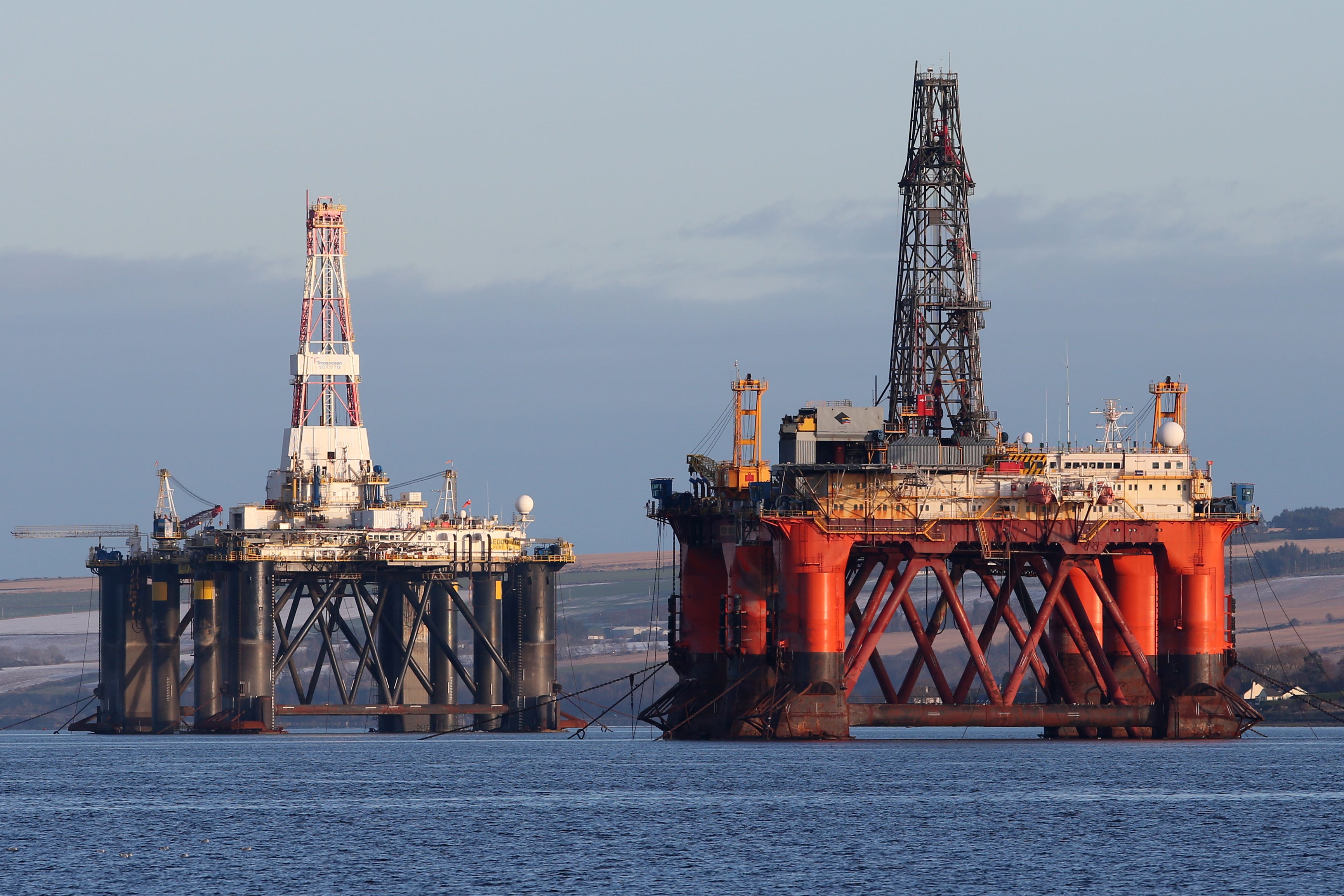Environmentalists to challenge two proposed oil and gas fields in court
Greenpeace UK and Uplift will take their cases to court in November.

Two environmental organisations have been granted permission for a legal challenge on the Rosebank and Jackdaw offshore oil and gas fields in the North Sea.
Greenpeace UK and Uplift’s legal grounds have been accepted, with a date set for November 12.
The environmental organisations are arguing that the impact of emissions from burning the oil and gas extracted from the fields were illegally ignored.
Greenpeace and Uplift will state in court the burning of the oil and gas while ignoring the effects on the climate is both illegal and unsafe, also stating that Rosebank will damage a protected area in the North Sea and the surrounding marine life.
Both environmental organisations will bring separate legal challenges against the UK Government’s decision to approve the oil field, and will be heard in the Scottish Court of Session.
The UK Government earlier said it will not challenge judicial reviews brought against Rosebank and Jackdaw in order to “save the taxpayer money”.
Both the Government and the Supreme Court agree that you cannot ignore the emissions generated from burning fossil fuels. Equinor, Shell and Ithaca know this, and they know that the consents for these fields are unlawful
Mel Evans, Greenpeace UK’s climate team leader, said: “It’s welcome news that we have permission on all of our legal grounds to challenge Rosebank and Jackdaw in two months’ time.
“We will continue to fight the corporate greed of fossil fuel companies like Equinor, Shell and Ithaca, and we look forward to our day in court.
“Both the Government and the Supreme Court agree that you cannot ignore the emissions generated from burning fossil fuels.
“Equinor, Shell and Ithaca know this, and they know that the consents for these fields are unlawful. But despite this they are continuing to develop them during this judicial review, putting people, marine life, and our climate at further risk.”
She added: “Rosebank and Jackdaw will do nothing to help our energy security or bring down our bills, the oil and gas extracted will be sold on the international market, making these companies, their bosses and shareholders even richer.
“If it went ahead, the Rosebank oil field could release as much carbon as 56 coal plants running for a year, costing UK taxpayers billions in subsidies, while lining the pockets of its big oil owners.
“And the Jackdaw field will produce more CO2 than the annual emissions of Ghana.
“The oil companies are trying to hide this from the public and the Government. That’s why we’re taking the fight to the oil companies in the Scottish courts in November.”
The Rosebank oil field is situated to the west of the Shetland isles, holding around 500 million barrels of oil equivalent, according to Uplift.
The organisation says 90% of its reserves are oil and the remainder is gas, and that burning all of it would amount to 200 million tonnes of CO2.
Discovered in 2004, its development has been delayed a number of times, but in August 2022 Norwegian oil company Equinor submitted an environmental statement to the UK Government outlining its plans to develop the Rosebank field, which triggered the start of the assessment process.
If the judicial reviews are successful, Uplift and Greenpeace will ask the court to quash the decisions to approve Rosebank, meaning the UK Government will be required to remake its decision in relation to Rosebank to fit legal requirements.
Tessa Khan, executive director of Uplift, said: “The stakes in this case should not be underestimated.
“Experts have long warned that there can be no new oil and gas developments if we’re to have a hope of staying within safe climate limits.
“With every passing month, the evidence against a huge project like Rosebank mounts up, whether that’s months of flooded fields damaging UK food production, or extreme temperatures and lethal flooding across Europe.
“This case is about protecting ourselves against the worsening climate crisis and putting an end to oil and gas industry profiteering.”
As we support the North Sea’s clean energy future, this Government is committed to protecting current and future generations of good jobs as we do so
UK energy minister Michael Shanks said: “This Government is committed to making Britain a clean energy superpower, helping to meet our first mission to kick-start economic growth.
“While we make that transition the oil and gas industry will play an important role in the economy for decades to come.
“As we support the North Sea’s clean energy future, this Government is committed to protecting current and future generations of good jobs as we do so.
“We were elected with a mandate to deliver stability, certainty and growth. Every action we take will be in pursuit of that.
“We will consult at pace on new guidance that takes into account the Supreme Court’s ruling on environmental impact assessments, to enable the industry to plan, secure jobs, and invest in our economy.”
A spokesperson for Equinor said: “Equinor – in principle – does not comment on ongoing litigation.
“Equinor welcomed regulatory approvals for the Rosebank development in 2023 and will continue to work closely with all relevant parties to progress the project.
“It is vital for the UK and will bring benefits in terms of local investment, jobs and energy security.”
A spokesperson for Shell said: “The hearing was administrative and no decision was taken on the substance of the case.
“From the outset, Jackdaw has been developed in line with all relevant consents and permits.
“At the substantive hearing of the judicial review in November, Shell will argue that those existing consents to develop Jackdaw should remain in place.
“We accept the Supreme Court’s ruling in the Finch case, but will argue that Jackdaw is a vital project for UK energy security that is already well under way.”
Ithica has been contacted for comment.
Bookmark popover
Removed from bookmarks